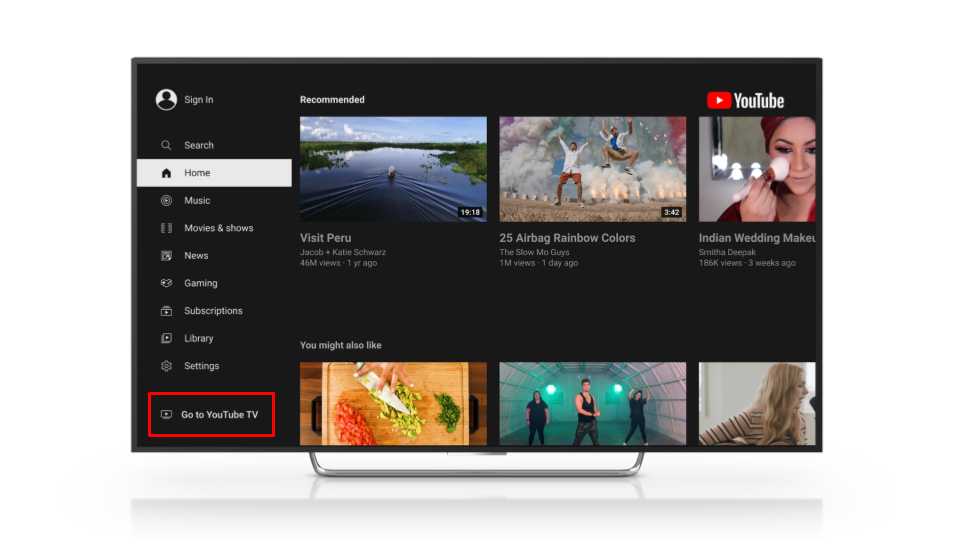
A week after Roku removed the YouTube TV app for new users, Google is countering by bringing the cord-cutting service to the main YouTube client.
Google has placed a “Go to YouTube TV” shortcut at the bottom of the main YouTube menu on Roku devices. This will load the YouTube TV experience that is no longer available as a standalone application. This strategy comes as the Play Movies & TV client is shutting down in favor of one YouTube app for everything.
This update will be available to all YouTube TV members on Roku over the next few days, and we will expand to as many devices as we can over time.
The company today says it is “still working to come to an agreement with Roku to ensure continued access to YouTube TV for our mutual customers.” That said, it is keeping an eye on existing subscribers. They currently still have access to the app, but Google is having “discussions with other partners to secure free streaming devices in case YouTube TV members face any access issues on Roku.”

Outside of the current YouTube TV dispute, Google says it’s “also in ongoing, long-term conversations with Roku to certify that new devices meet our technical requirements.” Roku is said to be unhappy with a requirement that future hardware supports the more efficient, but computationally-intensive AV1 codec. This requires more expensive chipsets and, therefore, raises the cost of streaming devices.
This certification process exists to ensure a consistent and high-quality YouTube experience across different devices, including Google’s own–so you know how to navigate the app and what to expect. We’ll continue our conversations with Roku on certification, in good faith, with the goal of advocating for our mutual customers.
This workaround sees Google successfully circumvent the need for a dedicated YouTube TV app, but Roku could threaten the main YouTube app. However, that would come at the great expense of its streaming box being the only one without the popular video service. The current deal with Roku for the main YouTube client runs until December of 2021.
Author: Abner Li
Source: 9TO5Google



